Good luck with your work in the coming week, and please listen next week for another prompt or suggestion.
Music: Aaron Shapiro

A writing podcast for writers and curious readers, featuring interviews with authors, poets, agents and editors. Twice chosen as one of Writer’s Digest Magazine’s 101 Best Website for Writers. Vermont-grown.
A writing podcast for writers and curious readers, featuring interviews with authors, poets, agents and editors. Twice chosen as one of Writer’s Digest Magazine’s 101 Best Website for Writers. Vermont-grown.

Tuesday Feb 18, 2020
Tuesday Feb 18, 2020
Tuesday Feb 18, 2020
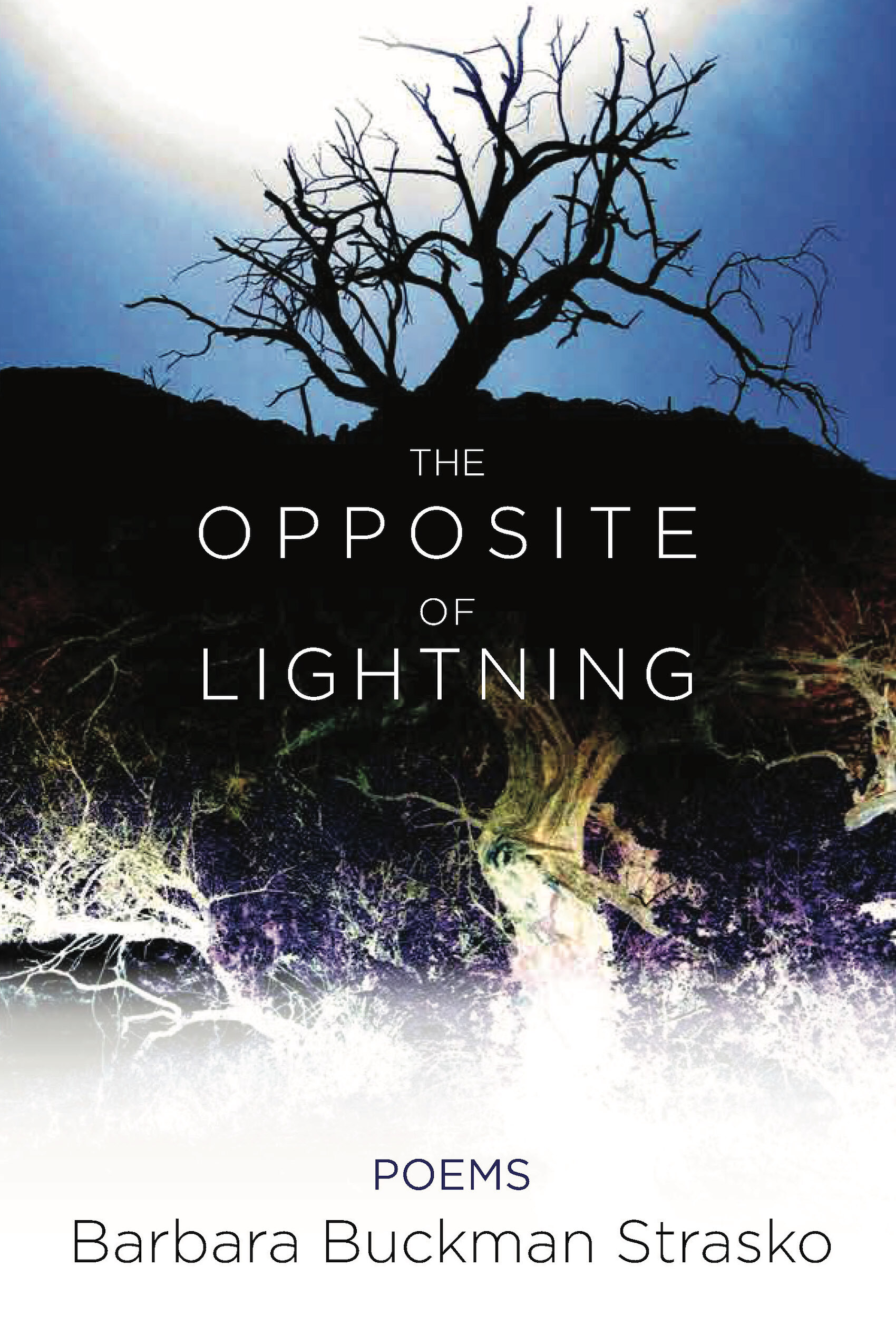
Interview from the archives with the poet Barbara Buckman Strasko, who has a new collection coming out soon from Word Poetry Books: The Opposite of Lightning. In this interview, we discuss an earlier collection, Graffiti in Braille (Wordtech).
In our conversation, Barbara and I discussed the ways that both graffiti and braille are forms of expression that circumvent some impediment. In the case of graffiti, that impediment might be a lack of authorization. In the case of braille, blindness. Other examples I can think of include a message in a bottle, skywriting, closed captions on a screen. This week’s Write the Book Prompt is to create a new form of expression that circumvents some deterrent, and write about it. Or write using it!
Good luck with your work in the coming week, and tune in next week for another prompt or suggestion.
Music Credit: Aaron Shapiro

Sunday Oct 20, 2019
Sunday Oct 20, 2019
Sunday Oct 20, 2019
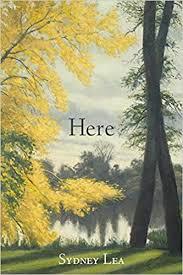
New interview with Author, Poet, and former Vermont Poet Laureate Sydney Lea, whose new poetry collection is titled Here (Four Way Books).
This week’s Write the Book Prompt is to write a villanelle. Syd Lea and I discussed his poem, “Old Lessons,” during our conversation, and he then explained what the poem’s form consists of. But here’s a recap, thanks to the Poetry Foundation (where you can also find examples): "The villanelle is a French verse form consisting of five three-line stanzas and a final quatrain, with the first and third lines of the first stanza repeating alternately in the following stanzas. These two refrain lines form the final couplet in the quatrain."
This week, write a villanelle! See what happens as you allow yourself this very specific form to contain the ideas that come.
Good luck with your work in the coming week, and tune in next week for another prompt or suggestion.

Thursday Mar 21, 2019
Thursday Mar 21, 2019
Thursday Mar 21, 2019

British author Diane Setterfield, whose new novel is Once Upon a River (Emily Bestler Books).
Write the Book Prompt (I posted two interviews this week): write about what's been hidden in the toe of your neighbor's shoe.
Good luck with your work in the coming week, and please listen next week for another prompt or suggestion.
Music: Aaron Shapiro

Monday Feb 11, 2019
Monday Feb 11, 2019
Monday Feb 11, 2019
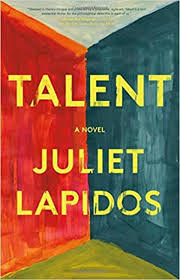
Senior Editor at the Atlantic and American Author Juliet Lapidos, whose debut novel is Talent (Little Brown).
This week’s Write the Book Prompt is to take a familiar theme and try to turn it sideways so a reader might see something new.
Good luck with your work in the coming week, and tune in next week for another prompt or suggestion.
Music: Aaron Shapiro

Thursday Dec 27, 2018
Thursday Dec 27, 2018
Thursday Dec 27, 2018

Tuesday Dec 04, 2018
Tuesday Dec 04, 2018
Tuesday Dec 04, 2018
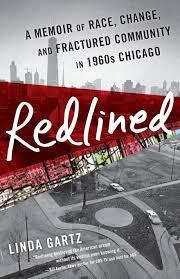
Author Linda Gartz, whose new book is Redlined: A Memoir of Race, Change, and Fractured Community in 1960s Chicago (She Writes Press).
A number of resources Linda mentioned during our interview can be found here, on her website.
This week I have two Write the Book Prompts to offer, both generously suggested by my guest, Linda Gartz. One is for memoir, the other for fiction. Here’s Linda’s memoir prompt: Write about an experience that has stayed in your memory, one that has meaning beyond an anecdote. Pick one: When did you feel humble, proud, ashamed, embarrassed, loved, or rejected. What made you feel that way, and what impact did that experience have on your future life, especially the way you dealt with future similar incidents or how it shaped your thinking about and behavior in life?
Here’s a prompt for Fiction writers: Imagine a character who has one of these traits… the character is: weak, kind, loving, arrogant, clueless to the impact his/her behavior has on others, or sneaky.
Write a scene in which the person demonstrates his/her character by showing actions or words, but not by labeling the behavior. (i.e. don’t say, ‘Jonathan was weak.” Create a scene that shows his weakness.)
Good luck with your work in the coming week, and please listen next week for another prompt or suggestion.
Music Credit: Aaron Shapiro

Monday Nov 26, 2018
Monday Nov 26, 2018
Monday Nov 26, 2018
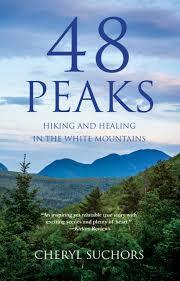
Cheryl Suchors, author of 48 Peaks - Hiking and Healing in the White Mountains (SheWrites).
This week's Write the Book Prompt is actually three prompts, generously suggested by my guest, Cheryl Suchors. Begin with one of these statements or questions, and then write:
Good luck with your work in the coming week, and please listen next week for another prompt or suggestion.
Music Credit: Aaron Shapiro

Friday Oct 19, 2018
Friday Oct 19, 2018
Friday Oct 19, 2018
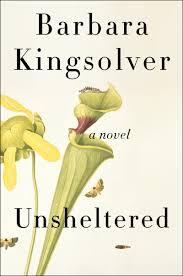
American novelist, essayist and poet Barbara Kingsolver, whose new book is Unsheltered (Harper).
Barbara Kingsolver is one of the reasons that I write. I loved Animal Dreams, her 1990 novel published by Harper Collins. After I finished that book, the voices of Kingsolver's characters would not leave me alone (in a good way). I recalled how much I love to write, and began to write a book of my own. Since that time, writing has offered solace, inspiration, satisfaction, and a sense of achievement. Reading her beautiful prose always inspires me to go to my desk. So today - sure, call it a Prompt - I encourage you to seek out the work you love, read it again, let it wash over and inspire you.
Good luck with your work in the coming week, and please listen next week for another prompt or suggestion.
Music Credit: Aaron Shapiro

Friday Sep 14, 2018
Friday Sep 14, 2018
Friday Sep 14, 2018

The station is closed for Labor Day, but be sure to tune in next week for an interview with Christina Dalcher, whose new book is VOX (Berkley).

Thursday Aug 02, 2018
Thursday Aug 02, 2018
Thursday Aug 02, 2018

Interview from the archives (and my old station, The Radiator!) with writer, nurse and humanitarian aid worker Roberta Gately, author of Lipstick in Afghanistan and The Bracelet.
This week's Write the Book Prompt is to turn on the television, find a drama, and write down the first sentence you hear. Use that as the first sentence in a new piece of work. Of course, if it's so unique that you'll later be accused of plagerism, go ahead and take it out after you've used it for inspiration.
Good luck with your work in the coming week, and please listen next week for another prompt or suggestion.
Music Credit: John Fink

Monday Mar 26, 2018
Monday Mar 26, 2018
Monday Mar 26, 2018
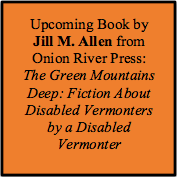
Vermont author Jill M. Allen, who will be reissuing her self-published story and ballad collection: The Green Mountains Deep: Fiction About Disabled Vermonters by a Disabled Vermonter, with Onion River Press (from Phoenix Books) in the near future.
This week’s Write the Book Prompt is to think about your own abilities and obstacles, and write about how they affect you as you make your way in the world.
Good luck with your work in the coming week, and please listen next week for another prompt or suggestion.
Music by Aaron Shapiro

Wednesday Jan 03, 2018
Wednesday Jan 03, 2018
Wednesday Jan 03, 2018
about shelagh



Monday Sep 11, 2017
Monday Sep 11, 2017
Monday Sep 11, 2017
 Interview from the archives with then-president of the League of Vermont Writers, Deb Fennell.
Interview from the archives with then-president of the League of Vermont Writers, Deb Fennell.
It is now officially football season. The Bills have a win, the Patriots, a loss. But it’s early days. This week’s Write the Book Prompt is to write about a football game that begins in a friendly way and turns nasty. It can be about a Thanksgiving touch football game, or a group of old friends coming together to watch the Superbowl. It can be about high school parents, professional players, the fans, or the guy selling beer and hot dogs. Be sure to describe the weather, the smells and sounds and colors.
Good luck with your work in the coming week, and please listen next week for another prompt or suggestion.
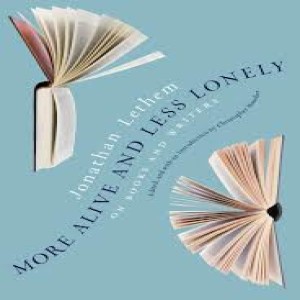
Tuesday Apr 25, 2017
Tuesday Apr 25, 2017
Tuesday Apr 25, 2017
Award-winning and best-selling author Jonathan Lethem with his new essay collection, More Alive and Less Lonely: On Books and Writers (Melville House).
This week’s Write the Book Prompt was generously suggested by our guest, Jonathan Lethem. Writers are often encouraged to go out and eavesdrop in cafes and other places where people gather, in order to write down what they overhear and learn how dialogue works. Lethem suggests that we go out to watch people, but not so close that you can actually hear their conversations. Observe them talking to one another, and through interpreting gesture, expression, and attitude, write what you think they MAY be saying to each other.
Good luck with your work in the coming week, and please listen next week for another prompt or suggestion.
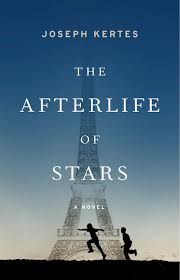
Wednesday Apr 05, 2017
Wednesday Apr 05, 2017
Wednesday Apr 05, 2017
Award-winning author Joseph Kertes, whose new novel is The Afterlife of Stars (Little Brown).
This week’s Write the Book Prompt was generously suggested by our guest, Joseph Kertes, who has used it in his classes. He was once asked by a ten-year-old in his daughter’s class - where he led the after-school writing club - “How do you know if you’re a comic writer or a tragic writer?” He answered, "Well, I guess if you start writing and it’s funny, you’re a comic writer." Then he brought them this prompt, which resulted in both very sad and very funny writing outcomes.
My best friend in elementary school was born without a head. At recess, she ran like the wind.
So that’s our prompt for this week. Write in response to that sentence, and see if what you come up with is comic or tragic.
Good luck with your work in the coming week, and please listen next week for another prompt or suggestion.

Wednesday Oct 19, 2016
Wednesday Oct 19, 2016
Wednesday Oct 19, 2016
An interview from 2012 with Writer and Gardening Expert Charlie Nardozzi, author of Northeast Fruit and Vegetable Gardening, published by Cool Springs Press. This interview was held in front of a live audience at the South Burlington Community Library.
Today's Write The Book Prompt was inspired by my conversation with Charlie Nardozzi. Write a poem, a story, or an essay about a flower or a fruit, a tree or a plant. Perhaps a new fruit, or one that has a color that has never before been known to exist. Perhaps a flower with a powerful smell. Or maybe you just write something about your garden, as we (finally) move toward fall.
Good luck with this prompt, and please listen next week for another.
Music credits: 1) "Dreaming 1″ - John Fink; 2) "Filter" - Dorset Greens (a Vermont band featuring several former South Burlington High School students).

Monday Oct 03, 2016
Monday Oct 03, 2016
Monday Oct 03, 2016
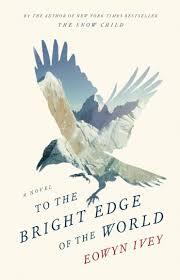
A new interview with Pulitzer-nominated author Eowyn Ivey, whose latest novel is To the Bright Edge of the World (Little Brown).
Good luck with this prompt, and please listen next week for another.
Music credits: 1) "Dreaming 1″ - John Fink; 2) "Filter" - Dorset Greens (a Vermont band featuring several former South Burlington High School students).
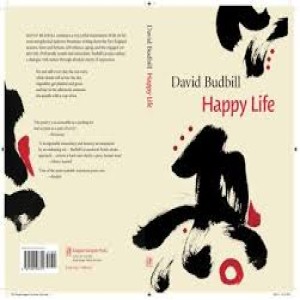
Monday Sep 26, 2016
Monday Sep 26, 2016
Monday Sep 26, 2016
Vermont Poet David Budbill died on September 25, 2016, following a long illness. I will miss him. Thankfully, his poetry stands as a tribute to a life well lived, and helps us to appreciate our world and our good fortune. This week's interview comes from the archives; I interviewed David in 2011 about his collection, Happy Life.
Good luck with this prompt, and please listen next week for another.
Music credits: 1) "Dreaming 1″ - John Fink; 2) "Filter" - Dorset Greens (a Vermont band featuring several former South Burlington High School students).
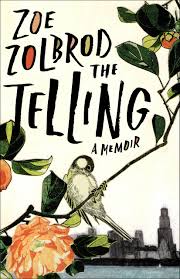
Friday Sep 23, 2016
Friday Sep 23, 2016
Friday Sep 23, 2016
Author Zoe Zolbrod, author of The Telling: A Memoir (Curbside Splendor).
Good luck with this prompt, and please listen next week for another!
Music credits: 1) "Dreaming 1″ - John Fink; 2) "Filter" - Dorset Greens (a Vermont band featuring several former South Burlington High School students).
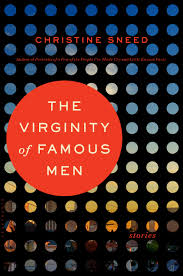
Friday Sep 16, 2016
Friday Sep 16, 2016
Friday Sep 16, 2016
A new interview with Christine Sneed, whose new story collection is The Virginity of Famous Men (Bloomsbury USA), just out this week.
This week’s Write the Book Prompt comes from our generous guest, Christine Sneed. Choose one of the following characters and write ten interview questions for him/her:
Someone who works on the housekeeping staff in a Las Vegas hotel.
Someone who owns 30 pairs of blue jeans.
Someone who runs a tow truck.
Someone who wants a famous face.
Good luck with this prompt, and please listen next week for another!
Music credits: 1) "Dreaming 1″ - John Fink; 2) "Filter" - Dorset Greens (a Vermont band featuring several former South Burlington High School students).

Tuesday Aug 30, 2016
Tuesday Aug 30, 2016
Tuesday Aug 30, 2016
Interview from the archives with Children's Writer Laurie Calkhoven, author of Michael at the Invasion of France, 1943, and other books. Since our interview, Laurie has published new books, including The Traveler's Tricks (a Caroline Mystery from American Girl Publishing).
Laurie Calkhoven remembers her first trip to a library left her "amazed and awed." Today's Write The Book Prompt is to write about a library experience. Do you remember your first visit to the library? I don't. But I do recall the feeling I got each time I walked inside our local public library - a tingling anticipation of discovery. Write about a sensory connection or a specific memory. Write a poem, an essay, a story or a scene. And then maybe go to the library, just to relive the exhilaration!
Good luck with this prompt, and please listen next week for another!
Music credits: 1) "Dreaming 1″ - John Fink; 2) "Filter" - Dorset Greens (a Vermont band featuring several former South Burlington High School students).
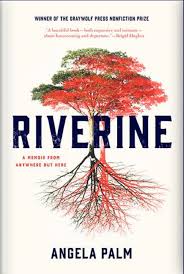
Thursday Aug 18, 2016
Thursday Aug 18, 2016
Thursday Aug 18, 2016
Vermont author Angela Palm, whose new book, Riverine: A Memoir from Anywhere but Here, received the 2014 Graywolf Press Nonfiction Prize (Graywolf Press, Aug. 2016). Palm is the editor of a book featuring work by Vermont writers, called Please Do Not Remove (Wind Ridge Books, 2014). She has taught creative writing at Champlain College, New England Young Writers' Conference, The Writers' Barn, and The Renegade Writers' Collective. She is a recipient of a Bread Loaf Fellowship in nonfiction.
Good luck with your work in the coming week, and please listen next week for another prompt or suggestion.
Music credits: 1) “Dreaming 1″ - John Fink; 2) “Filter” - Dorset Greens (a Vermont band featuring several former South Burlington High School students).
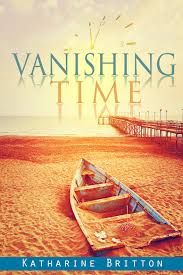
Saturday Aug 13, 2016
Saturday Aug 13, 2016
Saturday Aug 13, 2016
Katharine Britton, whose first two novels, Her Sister's Shadow and Little Island were published by Berkley Books. We discuss her latest novel, Vanishing Time, which Katharine brought out this year.
This week we have three Write the Book Prompts, all generously suggested by my guest, Katharine Britton, who is a writing teacher as well as an author.
Good luck with your work in the coming week, and please listen next week for another prompt or suggestion.
Music credits: 1) “Dreaming 1″ - John Fink; 2) “Filter” - Dorset Greens (a Vermont band featuring several former South Burlington High School students).

Saturday Jul 30, 2016
Saturday Jul 30, 2016
Saturday Jul 30, 2016
A conversation with Douglas Glover, founder, publisher and editor of the online magazine Numéro Cinq.
This week’s Write the Book Prompt, generously suggested by my guest Douglas Glover, is an "aphoristic mad lib." Doug began studying aphorisms early in his writing career, once he realized what they were and how they were used by certain writers he admired. This is from the Numéro Cinq website: “Generally speaking, aphorisms are terse, pointed sayings meant to provoke thought and argument. There are several basic types, but they often set up as definitions or clever balanced antitheses or even puns.” Doug recommends approaching the aphorism as a formal experiment. Decide which type appeals to you, and then sit down and write some. Don’t write just one; write many. Don’t spend too much time. Play with them, see what happens. Don’t think about what you mean ahead of time. The exercise is meant to be an act of discovery. After you’ve written some, play with putting them into thematic passages in your work. A few examples:
1) The definition aphorism:
_____ is _____.
2) The two (or three) kinds aphorism:
There are two kinds of ______: the _______, and the ________.
Good luck with your work in the coming week, and please listen next week for another prompt or suggestion.
Music credits: 1) “Dreaming 1″ - John Fink; 2) “Filter” - Dorset Greens (a Vermont band featuring several former South Burlington High School students).
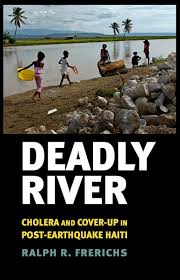
Friday Jul 22, 2016
Friday Jul 22, 2016
Friday Jul 22, 2016
UCLA Professor Emeritus Ralph Frerichs, author of Deadly River: Cholera and Cover-Up in Post-Earthquake Haiti (Cornell University Press). This nonfiction medical mystery explores how the greatest cholera epidemic in recent times arose in Haiti. The book follows French epidemiologist Renaud Piarroux, who conducted the investigation, and presents a case-study of how humanitarian organizations and their followers react when difficult truths become uncomfortable.
This week’s Write the Book Prompt is to study a map, and write about what you see there, what you learn, what places you suddenly want to travel to.
Good luck with your work in the coming week, and please listen next week for another prompt or suggestion.
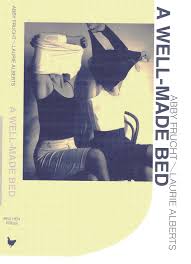
Sunday Jul 17, 2016
Sunday Jul 17, 2016
Sunday Jul 17, 2016
A new interview with Abby Frucht, co-author with Vermont writer Laurie Alberts of A Well Made Bed (Red Hen Press).
Good luck with your work in the coming week, and please listen next week for another prompt or suggestion.
Music credits: 1) “Dreaming 1″ - John Fink; 2) “Filter” - Dorset Greens (a Vermont band featuring several former South Burlington High School students).

Thursday Jun 16, 2016
Thursday Jun 16, 2016
Thursday Jun 16, 2016
Anjali Mitter Duva, author of the novel faint promise of rain (She Writes Press).
Music credits: 1) “Dreaming 1″ - John Fink; 2) “Filter” - Dorset Greens (a Vermont band featuring several former South Burlington High School students).

Wednesday Mar 02, 2016
Wednesday Mar 02, 2016
Wednesday Mar 02, 2016
An interview from 2012 with author Eowyn Ivey, whose novel The Snow Child (Reagan Arthur Books) was a 2013 Pulitzer Prize Finalist for Fiction.
Eowyn Ivey set her novel, The Snow Child, in her home state of Alaska which, in 1920, was "a brutal place to homestead." The desolate solitude and Alaskan wildness of this setting are vital to the story that Ivey goes on to tell. This week's Write the Book Prompt is to write about a brutal place.
Good luck with this prompt, and please listen next week for another.
Music credits: 1) “Dreaming 1″ - John Fink; 2) “Filter” - Dorset Greens (a Vermont band featuring several former South Burlington High School students).

Wednesday Mar 02, 2016
Wednesday Mar 02, 2016
Wednesday Mar 02, 2016
A new interview with Sydney Lea, who has just finished his term as Vermont's Poet Laureate. His new books are No Doubt the Nameless (Four Way Books) and What's the Story? Reflections on a Life Grown Long (Green Writers Press).
This week’s Write the Book Prompt is inspired by my new interview with Sydney Lea. Write about a dream, or the memory of a dream, or the almost memory of a dream.
Good luck with this prompt, and please listen next week for another.
Music credits: 1) “Dreaming 1″ - John Fink; 2) “Filter” - Dorset Greens (a Vermont band featuring several former South Burlington High School students).

Monday Feb 15, 2016
Monday Feb 15, 2016
Monday Feb 15, 2016
Interview from the archives with Timothy D. Wilson, Sherrell J. Aston Professor of Psychology at the University of Virginia and a researcher of self-knowledge and affective forecasting. In January 2012, we discussed his book Redirect: The Surprising New Science of Psychological Change, published by Little, Brown.
For this week's Write the Book Prompt, as I did when this interview first aired, I’m going to suggest checking out the Pennebaker writing page that Timothy D. Wilson mentions in his book, Redirect. On this page, you’ll find helpful advice about writing and health that you can read and think about.
Good luck with your writing this week, and please listen next week for another prompt.
Music credits: 1) “Dreaming 1″ - John Fink; 2) “Filter” - Dorset Greens (a Vermont band featuring several former South Burlington High School students).

Monday Jan 11, 2016
Monday Jan 11, 2016
Monday Jan 11, 2016
2011 Interview with Steve Almond. We discussed his then-new book, God Bless America. He subsequently published the popular and controversial book Against Football: One Fan’s Reluctant Manifesto.
This week's Write the Book Prompt is to write about someone having to give up something they love.
Good luck with this exercise and please listen next week for another.
Music credits: 1) “Dreaming 1″ - John Fink; 2) “Filter” - Dorset Greens (a Vermont band featuring several former South Burlington High School students).
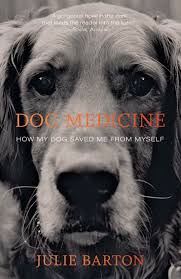
Wednesday Dec 09, 2015
Wednesday Dec 09, 2015
Wednesday Dec 09, 2015
Julie Barton, author of the new memoir Dog Medicine (Think Piece).
This week’s Write the Book Prompt was suggested by my guest, Julie Barton, and is based on “Wild Writing” work she has done with San Francisco writing coach Laurie Wagner (who leads online workshops as well as well as bay area classes). Julie says that “wild writing” is a phenomenal writing practice. Here’s the basic assignment: write by hand. Read any one of the following poems (follow the links to read them), and then write for 15 minutes, allowing your read of that poem to inspire you. Write as fast as possible, and even as poorly as possible, without thinking. By letting your subconscious lead the way, you’ll be more likely to access work you might otherwise never have gotten to.These are the poems that Julie recommends:
Good luck with this exercise and please listen next week for another.

Sunday Oct 04, 2015
Sunday Oct 04, 2015
Sunday Oct 04, 2015
Interview from the archives with New York Times Bestselling Author Mary McGarry Morris. We discussed her 2011 novel, Light from a Distant Star.
Music credits: 1) “Dreaming 1″ - John Fink; 2) “Filter” - Dorset Greens (a Vermont band featuring several former South Burlington High School students).

Sunday Sep 06, 2015
Sunday Sep 06, 2015
Sunday Sep 06, 2015
Interview from the archives with Evan Fallenberg, writer, translator and director of fiction for the Shaindy Rudoff Graduate Program in Creative Writing at Bar-Ilan University near Tel Aviv. Author of the novels Light Fell and When We Danced on Water.

Sunday Jun 28, 2015
Sunday Jun 28, 2015
Sunday Jun 28, 2015
Interview from the archives with Vermont poet David Budbill. Subsequent to this conversation, David Budbill's Park Songs: A Poem/Play came out from Exterminating Angel Press in September 2012. A new book is expected next month. Perhaps he'll agree to come back on the show to talk about it.
Good luck with this exercise and please listen next week for another.
Music credits: 1) “Dreaming 1″ - John Fink; 2) “Filter” - Dorset Greens (a Vermont band featuring several former South Burlington High School students).

Friday May 22, 2015
Friday May 22, 2015
Friday May 22, 2015
Gary Lee Miller to Co-Host Write the Book Radio Show and Podcast
FOR IMMEDIATE RELEASE
May 22, 2015 Burlington, VT—Shelagh Connor Shapiro is happy to announce that Gary Lee Miller will be joining Write the Book Radio Show and Podcast as a co-host. “After producing the show on my own for seven years, I look forward to Gary’s contributions. He’s an excellent writer and reader, and I know he’ll bring his own style to the show. Listeners are in for a treat as Write the Book transitions into this next phase.” Gary’s first interview, a conversation with Vermont author Sean Prentiss (Finding Abbey) airs June 8th.
Write the Book Radio Show airs every Monday from 2-3 p.m. on WOMM-LP in Burlington ("The Radiator"). Write The Book features interviews with authors, poets, agents and editors for an audience of writers and curious readers. The show is also podcast and can be found on iTunes. Close to 300 interviews are archived on the podcast site: http://writethebook.podbean.com Past guests include Howard Frank Mosher, Chris Bohjalian, Ann Patchett, Howard Norman, Sydney Lea, and Kate Atkinson. Write the Book guests often have a Vermont connection.
WOMM-LP - The Radiator - is a noncommercial low-power FM radio station located at Burlington College in Burlington, Vermont. A nonprofit listener-supported media center, The Radiator’s programming fosters community awareness and civic engagement; the station serves the surrounding community through locally oriented programming.
For more information please contact: Shelagh at writethebook@gmail.com or Gary at garygmiller@mac.com

Friday Apr 17, 2015
Friday Apr 17, 2015
Friday Apr 17, 2015
Award-winning Crime and Mystery Author Megan Abbott; we discussed her novel The End of Everything.
Good luck with this exercise, and listen next week for another.
Music credits: 1) “Dreaming 1″ - John Fink; 2) “Filter” - Dorset Greens (a Vermont band featuring several former South Burlington High School students.

Saturday Dec 27, 2014
Saturday Dec 27, 2014
Saturday Dec 27, 2014
Two interviews this week, with Vermont author and editor Angela Palm, whose new collection is Please Do Not Remove, and Vermont poet Malisa Garlieb, whose new book of poetry is Handing Out Apples in Eden. Both of these collections were published this fall by Wind Ridge Books of Vermont.
Today I have two Write The Book Prompts to offer, thanks to the generous suggestions of my guests, Angela Palm and Malisa Garlieb.
Malisa’s is to write a personal poem using a mathematical concept or equation as the primary metaphor, as she did in her poem, "Long Division."
Angi’s is this: select an image of a used library check-out card. Use any combination of the card's features as the source of inspiration for generating a new work of prose or poetry. Perhaps you'll be inspired by a particular patron's signature, a date stamp, or the book's subject matter or author. Perhaps you'll be struck by the card's appearance or the accumulation or use or non-use. Let the image transport you to another time or place, and draft some ideas or a follow a single idea for 10-15 minutes. In revision and shaping of the draft, study the card again and allow yourself to do a little research that might further develop your initial impulses into a story or essay. You may quickly find yourself pages deep in a story you never knew you'd want to write. Angi shared these images of library cards for your prompt this week. (Open individually in new tabs for a better look at each):





Good luck with these exercises and please listen next week for another!

Tuesday Feb 11, 2014
Tuesday Feb 11, 2014
Tuesday Feb 11, 2014
Vermont writer Jessica Hendry Nelson, author of the memoir If Only You People Could Follow Directions, and co-founder of the Renegade Writers' Collective.

Sunday Jun 02, 2013
Sunday Jun 02, 2013
Sunday Jun 02, 2013
Creator of the long-running and critically acclaimed graphic novel series Proof, and novelist, Alex Grecian. Writing about the famous London Murder Squad, Alex Grecian's latest is The Black Country, published by Putnam. Today's Write The Book Prompt is to write about the first sunny day after a long period of rain or sleet or snow. Good luck with this exercise and please listen next week for another. Music credits: 1) "Dreaming 1″ - John Fink; 2) "Filter" - Dorset Greens (a former Vermont band featuring several South Burlington High School graduates).

Friday Dec 14, 2012
Friday Dec 14, 2012
Friday Dec 14, 2012
Bestselling author Robin Cook, M.D. - perhaps best known for his breakout novel Coma - whose latest medical thriller is Nano, published by Putnam. This week's Write The Book Prompt is to write about something that is small, literally, but is large in another sense. Good luck with this exercise and please listen next week for another. Music credits: 1) “Dreaming 1″ - John Fink; 2) “Filter” - Dorset Greens (a Vermont band featuring several former South Burlington High School students, now alums).

Thursday Mar 29, 2012
Thursday Mar 29, 2012
Thursday Mar 29, 2012
2009 interview from the archives with award-winning poet Natasha Sajé. Today's Write The Book Prompt is to draft an essay for the New York Times Modern Love column. Their submission guidelines include the following advice: "The editors of Modern Love are interested in receiving deeply personal essays about contemporary relationships, marriage, dating, parenthood...any subject that might reasonably fit under the heading Modern Love. Ideally, essays should spring from some central dilemma the writer has faced in his or her life. It helps if the situation has a contemporary edge, though this is not essential. Most important is that the writing be emotionally honest and the story be freshly and compellingly told." So draft an essay for the column. Set it aside for a week. And then decide what, if anything, you might want to do with it. Revise and perfect it and send it to the NY Times. Or take the material you put into that draft and turn it into a poem or a story or a new aspect of another work in progress. Or maybe you won't want to take it further. But the act of creating that first draft is your prompt for this week. Good luck with this prompt, and please listen next week for another! Music credits: 1) "Dreaming 1″ - John Fink; 2) "Filter" - Dorset Greens (a Vermont band featuring several former South Burlington High School students).

Tuesday Nov 22, 2011
Tuesday Nov 22, 2011
Tuesday Nov 22, 2011
Award Winning Writer of Children's Books Kate Messner, whose latest is Over and Under the Snow. If you're interested to read about libraries in need following Tropical Storm Irene, check out this part of Kate's blog. Today's Write The Book Prompt is to write a story, a scene, a poem, or a paragraph that has something to do with the kind of reader you were as a child. Good luck with this exercise and please listen next week for another.

Monday Aug 15, 2011
Monday Aug 15, 2011
Monday Aug 15, 2011
Award-winning Crime and Mystery Author Megan Abbott, whose latest novel is The End of Everything. This week's Write the Book Prompt was suggested by my guest Megan Abbot. Select a long paragraph from a favorite book-Megan mentioned doing this with a section from the Great Gatsby-break it down and look at the sentence structure. Then rewrite the paragraph, keeping only each word's part of speech. Create a paragraph that works within a project of yours, trying to adhere (at least at first) to the original flow. You can change it in revision to work within your piece. But doing this first will bring out a new cadence or rhythm. Good luck with this exercise and please listen next week for another. Music credits: 1) “Dreaming 1″ - John Fink; 2) “Filter” - Dorset Greens (a Vermont band featuring several South Burlington High School students).

Friday Jul 22, 2011
Friday Jul 22, 2011
Friday Jul 22, 2011
Deborah Fennell, President of the League of Vermont Writers. This week's Write the Book Prompt was suggested by my guest, Deborah Fennell. The prompt COMBINES HER LOVES OF POETRY, PROSE, PHYSICAL EDUCATION AND WRITING. Go for a walk or a hike. As you're walking, say some words to yourself - whatever comes into your brain. Deb Fennell learned in a poetry workshop with Julia Shipley that we tend to walk in iambic pentameter. So this exercise tends to naturally bring out words in a memorable way. Be observant. When you get back inside, sit down and write at least 100 words, or for 10 minutes, whatever comes first. Don't worry about whether you're writing poetry or prose, just try to capture some of the words that came to you on your walk. Deb Fennell tries to always remember the first 8 words she'd been thinking about on her hike. If you can remember those, everything else begins to flow, helping you remember what you saw and thought about on your walk. Deb has done this in the city, and out in the woods on a trail. Because of the nature of our "iambic pentametric" strides, it's a productive way to access words in a creative way. Good luck with this exercise and please listen next week for another. Music credits: 1) “Dreaming 1″ - John Fink; 2) “Filter” - Dorset Greens (a Vermont band featuring several South Burlington High School students)

Thursday Apr 07, 2011
Thursday Apr 07, 2011
Thursday Apr 07, 2011
Novelist Kate Atkinson, Winner of the Whitbread Award and Creator of Bestselling Mysteries Featuring Detective Jackson Brodie. Her latest is Started Early, Took My Dog. This week's Write The Book Prompt is inspired by the interview you heard today with bestselling novelist Kate Atkinson. This one's simple. Find a line in a poem you like, and let it grow to become something you can write about. Not necessarily what the poet was writing about. In our interview, Kate Atkinson said that she began this book knowing only that she wanted to use Emily Dickinson's line, "Started Early - Took My Dog," for the title. She said during our talk that if you know your title in this way, "you don't have a blank page, you have something written down. ... it gives you a focus for your thoughts." Whether you use a favorite line of poetry as a title for another work, or merely as inspiration is up to you. Give it a try, and see if the blank page looks less daunting in this way. Good luck with this exercise and please listen next week for another. Music credits: 1) “Dreaming 1″ - John Fink; 2) “Filter” - Dorset Greens (a Vermont band featuring several South Burlington High School students).

Tuesday Mar 15, 2011
Tuesday Mar 15, 2011
Tuesday Mar 15, 2011
Donald and Lillian Stokes, authors of The Stokes Field Guide to The Birds of North America. This week's Write The Book Prompt is inspired by the interview you heard today with Donald and Lillian Stokes. Settle yourself in a comfortable spot where you can spot birds. Either go outside, if it's a lovely day, or sit in a window where you can see birds coming and going. Choose a bird and write as full a description of it as you possibly can. Here's an example from the Stokes' Guide. The Rock Sandpiper is a medium-sized, fairly rotund, short-legged sandpiper with a strongly tapered fine pointed bill that droops slightly at tip. After you record as much detail about the bird's shape, coloring and movements as you can, take that description and use it to fill out details about a character in your work. Mr. Piper was a rotund man of medium height whose short legs made him walk with an amusing little hop. He had a strong nose that drooped at the tip, as if pointing out that he had no chin at all. Good luck with this exercise and please listen next week for another. Music credits: 1) “Dreaming 1″ - John Fink; 2) “Filter” - Dorset Greens (a Vermont band featuring several South Burlington High School students).

Thursday Mar 10, 2011
Thursday Mar 10, 2011
Thursday Mar 10, 2011
With Burlington receiving its largest single March storm on record, we were unable to broadcast on Monday. Tune in next week for a live interview with Donald and Lillian Stokes, authors of the Stokes Field Guide to Birds of North America. And thanks for your patience. ~ Shelagh

Friday Feb 04, 2011
Friday Feb 04, 2011
Friday Feb 04, 2011
Writer of fiction, creative nonfiction and poetry Richard McCann, author of Mother of Sorrows. This week's Write the Book Prompt comes to us from the writer Dorothy Allison, by way of my guest, Richard McCann. In teaching writing at American University, he will occasionally offer this prompt to his students. First, he has them read Dorothy Allison's essay, SURVIVAL IS THE LEAST OF MY DESIRES, which is included in her collection, SKIN. In the essay, she suggests that writers make use of the whole of their lives: honor your dead, your wounded and your lost, and acknowledge your crimes and your shames-what you did and did not do in this world. Richards suggests making a list: who are your dead, your wounded and your lost (literal and metaphorical), and what are the crimes and shames of what you did and did not do. He says those lists become good places from which to start writing. Good luck with this prompt and please listen next week for another. Excerpt of Mother of Sorrows read with permission from Vintage, a division of Random House.

Monday Dec 27, 2010
Monday Dec 27, 2010
Monday Dec 27, 2010
Vermont Writer Kenneth M. Cadow, author of Alfie Runs Away published by Farrar, Strauss & Giroux, a division of MacMillan. This week's Write the Book Prompt was suggested by my guest, Kenneth Cadow, though he wanted to be sure I credit the true creator of the exercise, Emily Silver, who is an English Teacher at Thetford Academy. Ken and Emily co-teach from time to time. On one occasion, when the class was studying The Catcher in the Rye, Emily Silver gave the class the following exercise: write about your pet peeve, using your stream of consciousness to really go off on the subject. See where it takes you. Ken said that this exercise really got the students writing. His own pet peeve is vending machines. Good luck with this prompt and please listen next week for another. Alfie Runs Away read with permission. Music credits: 1) “Dreaming 1″ - John Fink; 2) “Filter” - Dorset Greens (a Vermont band featuring several South Burlington High School students).

Monday Nov 15, 2010
Monday Nov 15, 2010
Monday Nov 15, 2010
Interview with Vermont Mathematician, Professor and Author Joseph Mazur. This week's Write the Book Prompt was suggested by my guest, Joseph Mazur. I'm including it in his words, as sent to me in an email:
Good luck with this prompt and please listen next week for another.You know that nonfiction writing requires the writer to bring readers to places they haven't ever been and to tell them things they have not known. In one single sentence, that is the task of the nonfiction writer. But to keep readers reading, a book must be alive with human experience. That's the job of anecdotal entrances and anecdotal relief.
Anecdotes are there to first amuse, and therefore hook the reader, and then to give clues to what the book is about.
If you are writing nonfiction, try weaving in as much anecdotal material as possible. Take a look at some of Stephen Jay Gould's books for fine examples. Gould was the king of anecdotal entrances.
There are a few principles to favor when using a leading anecdote-Bring in something that the reader can identify with, a character, a place, an object, or a brief amusement. Watch out for making it too specific-specificity has an uncanny way of creeping into the lead to defeat the hook.
I introduce each of my own books with lead anecdotes-
I came to understand mathematics by way of a Russian novel. (The first sentence in a book about truth and logic in mathematics.)
My father was the first person to tell me about paradoxes of time. (The first sentence in a book about time and motion.)
When I was a child, my uncles would gather every Saturday at my grandparents' house to sit at a long dining room table telling jokes while accounting their week' s gambling wins and losses. (The first sentence in a book about the history and psychology of gambling.)
My own high school days were the near misfortune of my teenage years. (The first sentence in a book about learning math in an inner-city high school.)
What about anecdotal relief? In most cases, relief suggests a reprieve from something burdensome. And burdensome reading is never a welcome task. However, unless it is memoir or biography, nonfiction often involves the burden of strings of complicated information that tends to swell into what sometimes seems to be disconnected from thoughts of the real world. Even the best nonfiction writers need to think about anecdotal relief just as the most indefatigable readers need respite.

Tuesday Nov 09, 2010
Tuesday Nov 09, 2010
Tuesday Nov 09, 2010
Jon Turner, Vermont Veteran, Poet, Paper Maker and Warrior Writers Member. This week, instead of a Write the Book Prompt, I'm going to refer you to the Warrior Writers' blogspot. There, alongside regular blog entries, you'll find weekly writing prompts, poetry forms, and occasional shared work. Please listen next week when the Prompt will return. Music credits: 1) “Dreaming 1″ - John Fink; 2) “Filter” - Dorset Greens (a Vermont band featuring several South Burlington High School students)

Tuesday Nov 02, 2010
Tuesday Nov 02, 2010
Tuesday Nov 02, 2010
Interview with Jay Parini, Biographer, Poet, Novelist and Essayist. Author of The Passages of H.M. I'll leave this week's Write The Book Prompt in Jay Parini's exact words, just as you'll hear it when you listen to the interview:
If you're writing a poem, for example, it's important to have one deep image at the center of your poem. So, think of an image and really try to reinforce that image with concrete details. It works for prose as well, to begin with an image. See something. I always tell my students, in writing prose, if you're stuck, go through the senses: sight, smell, sound, taste, touch-the five senses. And try to make a gesture in the direction of each one of those senses.
Just describe a landscape. So I'm looking out the window. I say the autumn light slants across the field. I can smell the dry leaves with their mustiness. I can hear the leaves rattling. There's a cool breeze playing across my skin, which I can feel. I taste the slight acidity in the air.
And - boom - you've got a fall scene. So write for the senses and create images. Remember that an image is not just a picture but as Ezra Pound said, it's a kind of psychological and emotional complex, moving in time.
~ Jay Parini
Good luck with this exercise and please listen next week for another. Excerpt of The Passages of H.M. read with permission from Doubleday, a division of Random House, Inc. Music credits: 1) “Dreaming 1″ - John Fink; 2) “Filter” - Dorset Greens (a Vermont band featuring several South Burlington High School students)
Thursday Oct 28, 2010
Thursday Oct 28, 2010
Thursday Oct 28, 2010
Interview with Richard Russo, Novelist, Pulitzer Prize Winner and Author of That Old Cape Magic. This week's Write The Book Prompt is inspired by the subject matter of Richard Russo's novel, That Old Cape Magic. Write about a childhood vacation. This can be a recollected vacation from when you were a child, or an imagined vacation seen through the eyes of a fictional child. As you write, focus on details of place. Good luck with this exercise and please listen next week for another. Excerpt of That Old Cape Magic read with permission from Alfred A. Knopf, a division of Random House, Inc. Music credits: 1) “Dreaming 1″ - John Fink; 2) “Filter” - Dorset Greens (a Vermont band featuring several South Burlington High School students)

Thursday Oct 21, 2010
Thursday Oct 21, 2010
Thursday Oct 21, 2010
Sorche Fairbank, Literary Agent and Founder of Fairbank Literary in Hudson, NY. This week's Write The Book Prompt is directed toward aspiring novelists. Your job this week is to write a synopsis of your book. Many literary agents will ask to see a synopsis with an initial query, or as a follow-up to a query that caught their attention. Here are a few things to consider as you approach the task.
* A synopsis is not a chapter outline. It's not necessarily even a chronological retelling of the book. Rather, a synopsis presents the book's plot and introduces the main characters in an appealing way that will interest an agent in reading the whole novel. It's a chance to show off your creativity, as well as your ability to condense and organize material.
* You may find that the agents you are querying have their own guidelines for appropriate synopsis length. But if they don't specify otherwise, try to make your book synopsis two-to-three double-spaced pages.
* Use the jacket covers of books you're familiar with as guidelines for how to approach writing a good synopsis. Jacket copy is written to sell books, and that's what you're trying to do as well. Here's an example. This is the jacket copy of a paperback reprinting of George Orwell's 1984: "The world of 1984 is one in which eternal warfare is the price of bleak prosperity, in which the Party keeps itself in power by complete control over man's actions and his thoughts. As the lovers Winston Smith and Julia learn when they try to evade the Thought Police, and then join the underground opposition, the Party can smash the last impulse of love, the last flicker of individuality."
* UNLIKE book jackets, your synopsis should fully describe the plot of your novel, including what happens at the end. To skip over the ending in hopes that the agent will want the full experience of reading your masterpiece is to take yourself out of the running. This is a sales pitch, and the agent will want to know how your book ends if she requests a synopsis as part of the query process.

Wednesday Oct 13, 2010
Wednesday Oct 13, 2010
Wednesday Oct 13, 2010
Mark Pendergrast, Local Nonfiction Author of Inside the Outbreaks: The Elite Medical Detectives of the Epidemic Intelligence Service. This week's Write The Book Prompt has to do with detail. Gustave Flaubert was so concerned with getting every detail right that he often spent days struggling to arrive at exactly the right word. In her book, Mystery and Manners, Flannery O'Connor wrote, "Fiction operates through the senses, and I think one reason that people find it so difficult to write stories is that they forget how much time and patience is required to convince through the senses. No reader who doesn't actually experience, who isn't made to feel, the story is going to believe anything the fiction writer merely tells him. The first and most obvious characteristic of fiction is that it deals with reality through what can be seen, heard, smelt, tasted, and touched." This week, stop struggling to come up with details in your work, and just look around. Go to any corner of your house or garage or barn or place of work, and take in the details that are there. Touch that square of decorative carpet, and put into words what it feels like. Smell that candle, and write down what-if any-scent it has, and what you associate with that smell. Remember when you got that camera for your birthday, and how you were disappointed, because you'd wanted another brand? Look at that photograph of your cousin. What is he wearing? Why does he dress that way? Is his collar poking out from his jacket on one side? Is his shirt wrinkled and un-tucked? Or is he meticulous, beyond physical criticism? And if so, what does that say about him? How does that characterization fit with your experiences of being around him? This week's prompt is about re-educating yourself in the art of noticing details, so that you might more easily access them as you work. A COPY OF THIS PROMPT WILL BE INCLUDED in the description to this week's Podcast. Good luck with this exercise and please listen next week for another. Excerpt from Mark Pendergrast's Inside The Outbreaks read with permission. Music credits: 1) “Dreaming 1″ - John Fink; 2) “Filter” - Dorset Greens (a Vermont band featuring several South Burlington High School students)

Tuesday Oct 05, 2010
Tuesday Oct 05, 2010
Tuesday Oct 05, 2010
A Discussion Of Writers' Block with Angelique and Morella Devost, Hypnotherapists and Practitioners of Neuro-Linguistic Programming. This week we have two Write The Book Prompts, suggested by my guests. Morella and Angelique Devost. The first is the prompt you heard Angelique mention in the interview, to write about a "Fraught Drive in a Car." And the second is to consider the idea that Morella mentioned, What would you do if you could not fail? And then write with that sense of possibility. Good luck with these exercises and please listen next week for another. And check out these articles, if you're interested in resources about the work that Morella and Angelique Devost do. Music credits: 1) “Dreaming 1″ - John Fink; 2) “Filter” - Dorset Greens (a Vermont band featuring several South Burlington High School students)

Tuesday Aug 24, 2010
Tuesday Aug 24, 2010
Tuesday Aug 24, 2010
Burlington writer and teacher, Susan Weiss. Her blog is Publish or Perish... Which Will Come First? This week's Write The Book Prompt was suggested by my guest, Susan Weiss. Begin writing a narrative either from experience or imagination-just a sentence or two and then veer off onto a tangent. Continue for another couple of sentences and again go off on a tangent. Do this a few more times and then try to bring the narrative back to the beginning somehow, to make it feel like a full circle. So, are you left with dizziness or a sense of closure? Good luck with this exercise and please listen next week for another. Music credits: 1) “Dreaming 1″ - John Fink; 2) “Filter” - Dorset Greens (a Vermont band featuring several South Burlington High School students.

Monday Aug 16, 2010
Monday Aug 16, 2010
Monday Aug 16, 2010
Howard Norman, award-winning novelist of The Northern Lights, The Bird Artist, The Museum Guard, The Haunting of L, and Devotion. His latest is What Is Left The Daughter. This week's Write The Book Prompt is inspired by Howard Norman's work. At one point during our talk, he mentioned that the bifurcation of place in his novels creates multiple emotional counterpoints that appeal to him. As his characters move between two or more places, he as the author needs to reestablish their lives, or shift everything, and this can be interesting. He also said, "One doesn't sit around thinking about these things, except in ways that might be instructive." And so, to the extent that it might be instructive or interesting, your prompt this week is to consider introducing a second setting into your work. If you already have a storyline that takes place between two settings, study the work you've done and consider the ways in which you've created multiple counterpoints for your characters and their story. If your narrative takes place in a single setting, consider what might change for the work if you were to introduce a second place. It might not make sense, but think about it. See if this could create an interesting shift in your story, novel or prose poem. Good luck with this exercise and please listen next week for another. Music credits: 1) “Dreaming 1″ - John Fink; 2) “Filter” - Dorset Greens (a Vermont band featuring several South Burlington High School students.

Monday Aug 09, 2010
Monday Aug 09, 2010
Monday Aug 09, 2010
Jennifer Karin Sidford, columnist, blogger and award-winning creator of The Dreamstarter Books 1 & 2. This week’s Write The Book Prompt can be found in Jennifer Karin Sidford's first Dreamstarter Book. I found it appropriate because of its title: "The Radio Station." Jada found an old radio in the loft of a hay barn that had been deserted for many years. The hay that remained had turned to dust, leaving the floors, pitchforks, buckets and other tools covered in a heavy yellow coating. She picked up the radio and heard a rattle. She gave the radio a shake and heard the distinct sound of broken glass. "It's busted," she said aloud. "That's too bad." She tossed the radio onto a pile of old grain sacks. The radio began to hum; the dial lit up. Jada walked over to the radio and picked it up. A voice came through the radio's speaker. "Hello? Is anyone there? Can anyone hear me?" the girl's voice said. She had an accent that was very different than Jada's. Jada lowered her mouth to the radio speaker and shouted, "I can hear you! Who are you?" The girl answered... This one should be a lot of fun to play with. If Jada's story inspires you to write something that you like, remember that you can't publish the first part, as Jennifer already did! Good luck with this exercise and please listen next week for another. Music credits: 1) "Dreaming 1″ - John Fink; 2) "Filter" - Dorset Greens (a Vermont band featuring several South Burlington High School students.

Monday Aug 02, 2010
Monday Aug 02, 2010
Monday Aug 02, 2010
Connie May Fowler, award-winning novelist, memoirist, and screenwriter. This week's Write The Book Prompt was suggested by my guest, Connie May Fowler, whose latest novel, How Clarissa Burden Learned To Fly, involves the ghosts of women who reside in a graveyard. Connie May recommends walking through a cemetery in your own area and finding a tombstone, and then writing a story or poem inspired by that tombstone and the person whose grave it marks. Good luck with this exercise and please listen next week for another. Music credits: 1) “Dreaming 1″ - John Fink; 2) “Filter” - Dorset Greens (a Vermont band featuring several South Burlington High School students.

Monday Jun 21, 2010
Monday Jun 21, 2010
Monday Jun 21, 2010
Anne Trooper-Holbrooke, Coleen Kearon, Benjamin Malcolm, and Susan Ritz: four writers working to develop their craft. This week’s Write The Book prompt was inspired by a comment made by one of my guests. Coleen Kearon mentioned her efforts to introduce more plot, more active scenes into her prose, and to pay attention to the amount of introspection she includes. She described this effort as a move toward plot and away from too much exposition. You may have the same problem. Or perhaps, yours is the opposite problem. If you're a poet, this might not seem like a useful exercise, but the bottom line is balance. Read over your work with an eye to what you use too much of, and how you might rectify that by introducing balance. First, identify the qualities you want to balance. Action and introspection, for example. Or dialogue and exposition. Character interaction and scene setting. Take markers and highlight the parts of your work that fit one versus the other quality that you're trying to balance. Don't judge yourself as you go, but just objectively highlight the differences. And then study your work with this new colorful enhancement and work to right the disproportion. Good luck with this exercise and please listen next week for another. Music credits: 1) “Dreaming 1″ - John Fink; 2) “Filter” - Dorset Greens (a Vermont band featuring several South Burlington High School students.

Monday May 24, 2010
Monday May 24, 2010
Monday May 24, 2010
Ginnah Howard, author of Night Navigation, joins Shelagh Shapiro on Write The Book. This week's Write The Book prompt was inspired by the work of my guest, Ginnah Howard, who mentioned a few times during our talk how important rhythm is to her in her own work and in the books she admires. In order to get a better sense of the rhythm of her prose, she often reads her work out loud. Your prompt this week, then, is to read aloud. Really listen to what you've written. You may find it differs from what you thought it would sound like. Listen for simple mistakes, for repeated words that you didn't intend to place so close together. As you read, pause in appropriate places for the punctuation you've used. Pay attention to the length of your sentences. Does their length reflect the intended mood of the fictional moment? Listen for the following elements, and decide if they are serving your work, or distracting from it: rhyme, fragments, alliteration, and repetitive sentence structure. In this last case, watch in particular for the repeated use of a subject, verb, object structure that may lull readers or distract them, making them lose their way. For example, which sounds better? Mary had a little lamb. Mary's lamb had white fleece. Mary's lamb followed her everywhere. Mary's lamb really got on her nerves after a while. He wanted to follow her to school. She had to stop him. Or Mary had a lamb. Fleecy and white, it was a sweet little animal, and very devoted. While Mary loved how the lamb followed her from room to room, she had to keep him from actually coming to school with her. Finally, you might find it helpful to have someone else read your work aloud to you. If this is too embarrassing, you might look to see if your word processing program has a "speak text" feature. Speak text allows you to highlight sections of work and have the computer read them back. Despite the somewhat robotic voices that some computers have, you might hear something you'd missed, just by virtue of being read to. In fact, using sound editing software, you can actually record your entire book and put it on your mp3 player, which is pretty cool. You can email me (writethebook@gmail.com) if you want to know how to do this. Good luck with this exercise and please listen next week for another.

Wednesday May 19, 2010
Wednesday May 19, 2010
Wednesday May 19, 2010
Interview with Willow Bascom, author and illustrator of the new book, Paisley Pig: A Multicultural ABC, published by Publishing Works. This week’s Write The Book prompt, was suggested by my guest, Willow Bascom, who noted during our talk that many writers and artists have trouble identifying themselves as such. She suggests counteracting this by offering artistic services for free, for example to a local food co-op or other non-profit. Write an ad, or make a stunning poster or sign that the non-profit wouldn't budget for normally. Volunteer your expertise. When you see the pleasure that other people take in what you do, you can value yourself and, in turn, your work. Give it away, and next time you're asked what you do, call yourself an artist. Say it with confidence. Good luck with this exercise and please listen next week for another!

Thursday May 06, 2010
Thursday May 06, 2010
Thursday May 06, 2010
Interview with Matthew Aaron Goodman, author of the novel Hold Love Strong, published by Touchstone Fireside (Simon and Schuster April 2009). This week's Write The Book prompt, a musical free write, was suggested by my guest, Matthew Aaron Goodman. Spend a little time picking a song or songs to which you think you could write. Put on the piece, and then write. Don't pick up your pen once it hits the page. Write whatever crosses your mind. Even if all you write is, "this is crazy I don't have any ideas," write that down. No scribbling or doodling. Put words on paper. Keep going for the length of the song or songs that you chose ahead of time. Good luck with this exercise and please listen next week for another!

Thursday Apr 29, 2010
Thursday Apr 29, 2010
Thursday Apr 29, 2010
Interview with Gary Clark, Writing Program Director at the Vermont Studio Center. This week's Write The Book Prompt is inspired by the Vermont Studio Center and writing retreats in general. Even if you can't get to a retreat at present, perhaps you can offer yourself a mini-retreat. Begin by looking at your writing space. Really study it. Is it a place you look forward to going to, sitting down and working in? If not, what might you be able to do to create a more comfortable, enjoyable atmosphere? Maybe you need to put in a bookshelf full of the kinds of books you might like to reach for when you need inspiration. Maybe you should consider new décor, a poster, a small colorful rug, a comfortable chair where you can sit and read over what you've written on a given day. Or maybe you need to do the opposite: simplify. Is the space too full of knick knacks, books, papers, pens? Do you need to clean it out, reduce the clutter? Figure out what you need to make yourself look forward to being in your writing space. Then, on a certain day, plan ahead. Make yourself lunch, put it in a picnic basket, and leave it outside your office door. Turn off your phones, ask your family to leave you in peace for one day. Create your own personal retreat. And then go to your space, sit down, and write. Good luck with your feng shui and please listen next week for another exercise. Music credits: 1) “Dreaming 1″ - John Fink; 2) “Filter” - Dorset Greens (a Vermont band featuring several South Burlington High School students.

Monday Apr 05, 2010
Monday Apr 05, 2010
Monday Apr 05, 2010
Interview with novelist Alice Lichtenstein, author of Lost, published by Scribner. Write The Book Prompt: One of Alice Lichtenstein's initial inspirations for her new novel, Lost, emerged from a writing exercise. You heard in our interview that she was moved to write about Corey's experience after a friend suggested they write in response to the words: "Day of Fire." This week, consider a "Day Of" exercise. Not Day of Fire, necessarily, though if that brings something to the forefront for you, go with it. But consider the theme of medicine and health and come up with a "Day Of" idea. You might use "Day of Flu," "Day of Doctors," "Day of Needles," "Day of Blood." The specific label is up to you. Use medicine and health as the overarching inspiration, and come up with a "Day Of" idea that might inspire you to write. Good luck with this exercise and please listen next week for another. Music credits: 1) “Dreaming 1″ - John Fink; 2) “Filter” - Dorset Greens (a Vermont band featuring several South Burlington High School students.

Monday Apr 05, 2010
Monday Apr 05, 2010
Monday Apr 05, 2010
Interview with Wouter Nunnink, self-published author of the YA series Ba El Shebub's Gift Awakens Write The Book Prompt: In his book, A Mad Man's Poison, Walt Nunnink has created a world that mixes reality and fantasy. One of the aspects of this world is a magical book that only the two main characters can see. In your work this week, play around with this idea of something that can be seen or otherwise perceived by one character or set of characters, but not by others. You could work, as Walt does, with a magical world in which a certain item is selectively visible, or audible. Maybe one of your characters always catches the scent of lilacs on the air when night is coming on. Even if you don't write in the fantasy genre, consider this exercise as a way to learn about how your characters' perceptive capacities differ. Maybe your main character senses tension between two co-workers, while his boss is completely oblivious. Or perhaps a wife can tell that her husband is attracted to another woman, but the woman doesn't notice in the least. Good luck with this prompt and please listen next week for another. Music credits: 1) “Dreaming 1″ - John Fink; 2) “Filter” - Dorset Greens (a Vermont band featuring several South Burlington High School students)

Tuesday Mar 23, 2010
Tuesday Mar 23, 2010
Tuesday Mar 23, 2010
Interview with local author Tim Brookes about his new book, Thirty Percent Chance of Enlightenment. Prompt: This week, instead of a Write The Book Prompt, I offer what I'm calling an "anti-prompt." When I asked my guest, Tim Brookes, if he had a prompt to suggest, he answered with a very firm "no." Tim does not use prompts, and as a teacher, he does not assign them. When I asked him if I might offer his opinion this week, instead of a prompt, he wrote me the following email. Perhaps you'll find it useful.
I guess I'm anti-prompt for the same three reasons why I'm against that rhetoric/debate exercise where the teacher says, "Which side are you on when it comes to this issue? Okay, in that case, argue the opposite side."
One, I want my writers to discover what they have to say by paying attention to their own inner landscape, their own issues, passions, dark corners.
Two, that's not the way it works in real life.
Three, it takes a writer absolutely at the top of his/her game to be able to pull that off well.
One: it takes a great deal of time and practice for a young writer even to be aware of what s/he has to say, let alone to have the confidence and the means to say it powerfully. To me that's a crucial, crucial goal. Writing to a prompt produces reactive writing--writing to please someone else, writing to respond to someone else--which actually takes the writer's focus away from what is most important to him/her. For the prompt to strike home and hit a subject of genuine urgency and importance to the writer is like throwing a dart across the street and trying to hit the bulls eye of a dartboard on the other side of the traffic. Giving prompts is a way to get writing from the student, but not a way of helping the student become a writer. It's a recipe for bullshit.
Two: In all the twenty years I was writing for NPR--the form that's closest to the kind of short personal essay/poem product that writing prompts are usually intended to provoke-I was only ever asked to respond to a specific subject twice. My best feature-story editor used to say to me, "What do you want to spend three months learning about?" It's true that a good many journalists are given assignments they have to go and cover, but they themselves would rarely claim that daily grind produced their best writing. The fact is, we writers write best about the things that matter to us. Sometimes we can bring that passion to a subject that was assigned to us, but more often that's not the case. If you want student writers to write like professional writers, have them talk to poets/novelists/essayists and ask them, "How do you reach your best writing?" and see what they say. And here's the real problem: none of those writers will say, "I sit down in a regularly scheduled English class at 10:10 every Tuesday and Friday and whatever's going on inside me or around me I always find something to say." Bollocks.
Three: It is possible to write well from a prompt--and in a sense editorial writers do it all the time--but there's a reason why a newspaper's editorials are written by the most seasoned, experienced, widely-read writers on the staff. You need to have an astonishingly wide range of reference in order to have a chance of understanding the subject, let alone saying anything worthwhile; you need a deep sense of form and structure to be able to create a finished piece of given proportions in a limited time; and you need to be capable of interesting turns of phrase under pressure. Student writers try desperately to ape that kind of skill, but they also know that 85% of what they write is bullshit. I know: I've asked them. So I'd far rather have them attempt something that genuinely means something to them. Even the act of trying to access that genuine subject is worth more than facility at writing a poem on Spring at the drop of a hat.
So what do I use instead of prompts?
I usually just say, "Think back to an incident or a conversation (conversation is better, as it's much more specific) that you've had, or you've witnessed, from the past twelve months, one that you recall with some kind of strong emotion. Now write about that in as much detail as you can remember."
So that's Tim's take on prompts. I offer his words as encouragement to anyone who doesn't tend to find them helpful or generative. For those of you who do like them, the prompt will be back next week. I may rename it, though... hmm. Good luck with your writing this week!
Thursday Mar 11, 2010
Thursday Mar 11, 2010
Thursday Mar 11, 2010
Interview with Poet and Short Fiction Writer David Jauss. Prompt: This week's Write The Book Prompt was inspired by work of my guest, David Jauss. As we discussed in the interview, David published an essay titled, "Remembrance of Things Present: Present Tense in Contemporary Fiction," in the March/April 2002 issue of the AWP Chronicle. Here is a quote from that article:
Whatever the causes for the prevalence of the present tense in our fiction, it is important that we understand its advantages and disadvantages, so we can better decide when to use it. Our principal concern as writers ought to be to choose those techniques which best serve the particular story we're writing...
As an exercise this week, experiment with tense. If you have a story or a narrative poem that doesn't seem to be working, see what happens if you change the tense. Consider the level of immediacy that you want to bring to the piece. Think, too, about how tense affects narrative introspection, and how it might heighten or detract from the overall theme, or sense of what you're trying to accomplish. As you study the piece, written in different tenses, you may find you have an instinctive reaction about which is the best way to go.
Tuesday Mar 02, 2010
Tuesday Mar 02, 2010
Tuesday Mar 02, 2010
Interview with Vermont author Howard Frank Mosher. Prompt: This week’s Write The Book Prompt was inspired by the interview you heard today. Howard Frank Mosher mentioned during our talk that he had twice, in the course of writing his new book, Walking To Gatlinburg, asked his wife Phyllis to cast and read Nordic runes as a helpful form of inspiration. He did this partly because Phyllis was studying runes at the time, and partly because runes were the inspiration for the Kingdom Mountain pictographs that play a role in his new book. This week's Write The Book Prompt, then, is to cast runes. For help in understanding how to do this, try these websites (or Google "Nordic Runes," and see if you find other references): http://www.ehow.com/how_5830139_make-own-rune-set.html http://www.runemaker.com/casting.shtml Set yourself a question or problem that you'd like to resolve in your work, and let the runes offer suggestions. These could inspire a course of action for your character, for yourself, for the plot, or for the structure of the project. Keep your mind open and see what presents itself. Good luck with this exercise, and please listen next week for another. Music credits: 1) “Dreaming 1″ - John Fink; 2) “Filter” - Dorset Greens (a Vermont band featuring several South Burlington High School students)

Sunday Feb 28, 2010
Sunday Feb 28, 2010
Sunday Feb 28, 2010
Interview with author Kathryn Davis. Prompt: This week’s Write The Book Prompt was inspired by the interview you heard today with novelist Kathryn Davis. To avoid getting stuck and maintain her interest in an ongoing project, Kathryn said she does two main things. First, she does not read over what she’s written at the end of a given writing session; she waits and reads that work when she next sits down to write. Second, as she finishes each writing session, she winds down by allowing herself to free write for a page or so. This encourages thoughts and ideas that might have been deterred by her more focused or controlled thought process as she was working. She mentioned that useful ideas often come out of this end-of-day free writing. The next time you write, try these two strategies. First, do not allow yourself to read over your work when you finish writing at the end of a given day. Wait until your next writing session. And second, spend five or ten minutes free writing after a regular, disciplined writing session, and see what fresh, useful and relevant ideas might result. Music credits: 1) “Dreaming 1″ - John Fink; 2) “Filter” - Dorset Greens (a Vermont band featuring several South Burlington High School students)

Tuesday Feb 16, 2010
Tuesday Feb 16, 2010
Tuesday Feb 16, 2010
Interview with Gary Kowalski, senior minister to the First Unitarian Universalist Society in Burlington and the author of several bestselling books, including Revolutionary Spirits: The Enlightened Faith of America's Founding Fathers. Today's Write The Book Prompt is inspired by President's Day. As you look for writing ideas this week, consider one of the following quotes. Listen to these famous words by some of America's founding fathers, and then free write.
He that goes a borrowing goes a sorrowing. ~ Benjamin Franklin
If there must be trouble, let it be in my day, that my child may have peace. ~ Thomas Paine
Where the press is free and every man able to read, all is safe. ~ Thomas Jefferson
Guard against the impostures of pretended patriotism. ~ George Washington
Philosophy is common sense with big words. ~ James Madison
Good luck with this exercise and please listen next week for another. Music credits: 1) “Dreaming 1″ - John Fink; 2) “Filter” - Dorset Greens (a Vermont band featuring several South Burlington High School students.
Monday Feb 08, 2010
Monday Feb 08, 2010
Monday Feb 08, 2010
Interview with literary agent Janet Reid, of FinePrint Literary Management. Today's Write The Book Prompt is to write a query letter. It should be a single page long. And according to Janet Reid, it should be "as well written, and carefully thought out as you can make it." Avoid hyperbole and cliche. Avoid the expression: my book is about. If you query by snail mail, always include an SASE: that's self-addressed stamped envelope. ALWAYS include your email address and phone number on the query letter. And address the letter to a specific agent, not to a long list of names in an email. And not to Agent, as in, "Dear Agent." And be sure to check out Janet Reid's excellent chart, What You Need Before You Query as well as her second website, Query Shark. Good luck with this exercise and please listen next week for another. Music credits: 1) “Dreaming 1″ - John Fink; 2) “Filter” - Dorset Greens (a Vermont band featuring several South Burlington High School students.

Tuesday Feb 02, 2010
Tuesday Feb 02, 2010
Tuesday Feb 02, 2010
Scroll down until you see the mini-audio player (below each week's writing prompt and details about the show's music). Click on the small red triangle-the "play" button-to listen right now. Click on the word "Download" to move a copy of the interview onto your computer and listen later. Click to "Subscribe" (under the colorful typewriter logo to the right of the most recent episode). Alternatively, subscribe via iTunes: Download iTunes software if you don't already have it on your computer. Open that software and click on the iTunes Store. Search the store for "Write The Book" under podcasts. Write The Book is marked by a colorful typewriter icon. Click on that icon to see a listing of the latest shows. From the next screen, you should be able to click on the "Subscribe" button. From then on, Write The Book episodes will automatically download to your computer each week when you open iTunes. Thanks for listening!